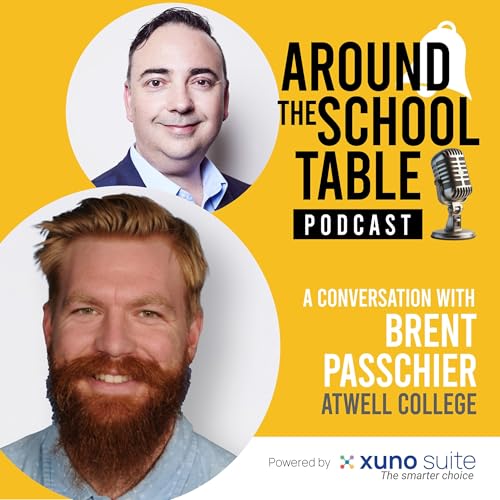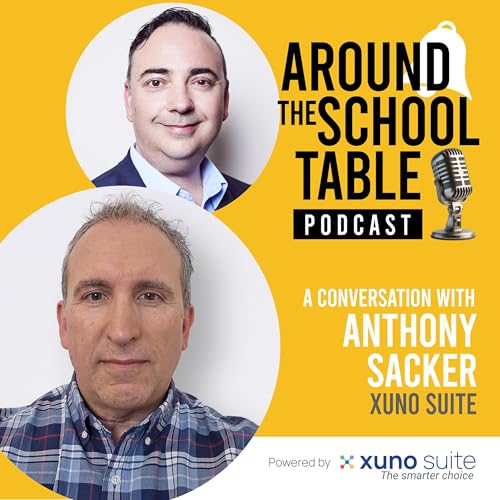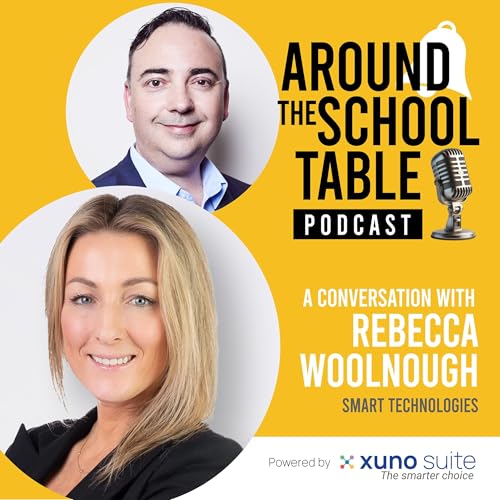
Around the School Table
No se pudo agregar al carrito
Add to Cart failed.
Error al Agregar a Lista de Deseos.
Error al eliminar de la lista de deseos.
Error al añadir a tu biblioteca
Error al seguir el podcast
Error al dejar de seguir el podcast
-
Narrado por:
-
De:
-
Auscast Network
Around the School Table" brings together the many voices shaping primary and secondary education across Australia, from principals and teachers to education thought leaders and system innovators. Whether you're in the classroom, the staff room or the boardroom, this is your podcast to be informed, inspired and connected.
About Xuno
Xuno Suite is an all-in-one school management system for Australian K–12 schools. It simplifies administration, boosts communication, and supports student wellbeing. Core features include attendance, reporting, payments, incident tracking, and a parent app for real-time updates. Teachers can manage assessments, schedules, and contact families through the platform. Additional modules like Accelerus (advanced reporting) and Student Maps (learning analytics) offer deeper insights. Xuno complies with ACARA and ST4S standards, is locally supported, and trusted by over 500,000 users nationwide.
Website: https://xuno.com.au/
Email: info@xuno.com.au
-
 Sep 28 202535 m
Sep 28 202535 mNo se pudo agregar al carrito
Solo puedes tener X títulos en el carrito para realizar el pago.Add to Cart failed.
Por favor prueba de nuevo más tardeError al Agregar a Lista de Deseos.
Por favor prueba de nuevo más tardeError al eliminar de la lista de deseos.
Por favor prueba de nuevo más tardeError al añadir a tu biblioteca
Por favor intenta de nuevoError al seguir el podcast
Intenta nuevamenteError al dejar de seguir el podcast
Intenta nuevamente -

Episode 16: Anthony Sacker – Turning DIBELS Data into Action – Around the School Table by Xuno Suite
Sep 21 202526 mNo se pudo agregar al carrito
Solo puedes tener X títulos en el carrito para realizar el pago.Add to Cart failed.
Por favor prueba de nuevo más tardeError al Agregar a Lista de Deseos.
Por favor prueba de nuevo más tardeError al eliminar de la lista de deseos.
Por favor prueba de nuevo más tardeError al añadir a tu biblioteca
Por favor intenta de nuevoError al seguir el podcast
Intenta nuevamenteError al dejar de seguir el podcast
Intenta nuevamente -
 Sep 14 202531 m
Sep 14 202531 mNo se pudo agregar al carrito
Solo puedes tener X títulos en el carrito para realizar el pago.Add to Cart failed.
Por favor prueba de nuevo más tardeError al Agregar a Lista de Deseos.
Por favor prueba de nuevo más tardeError al eliminar de la lista de deseos.
Por favor prueba de nuevo más tardeError al añadir a tu biblioteca
Por favor intenta de nuevoError al seguir el podcast
Intenta nuevamenteError al dejar de seguir el podcast
Intenta nuevamente



